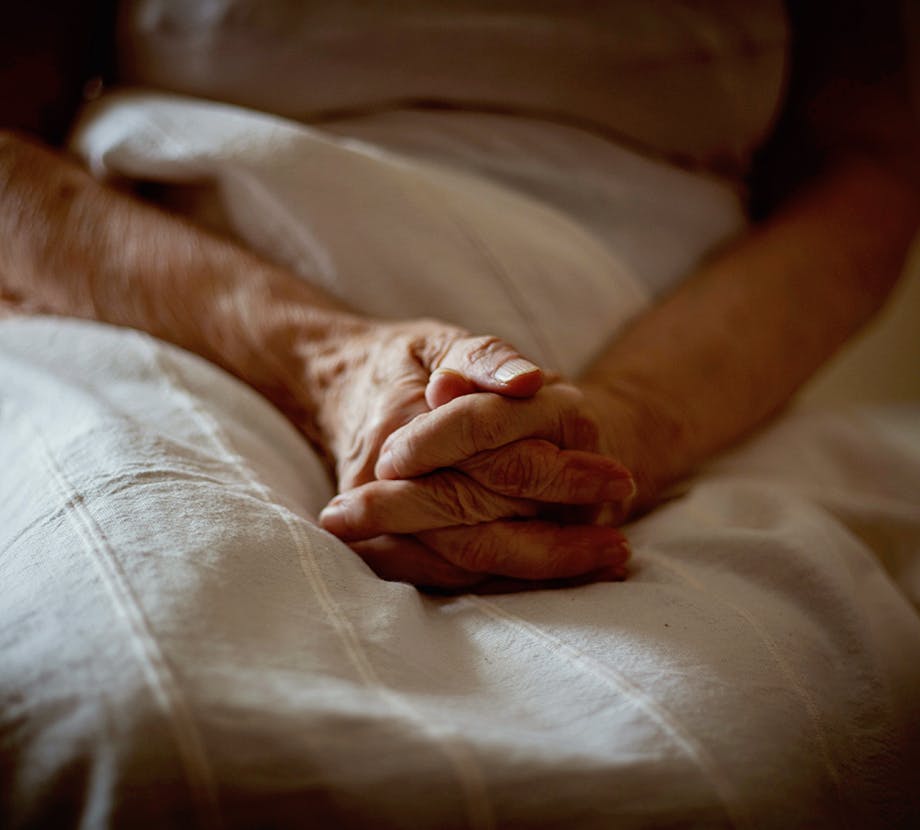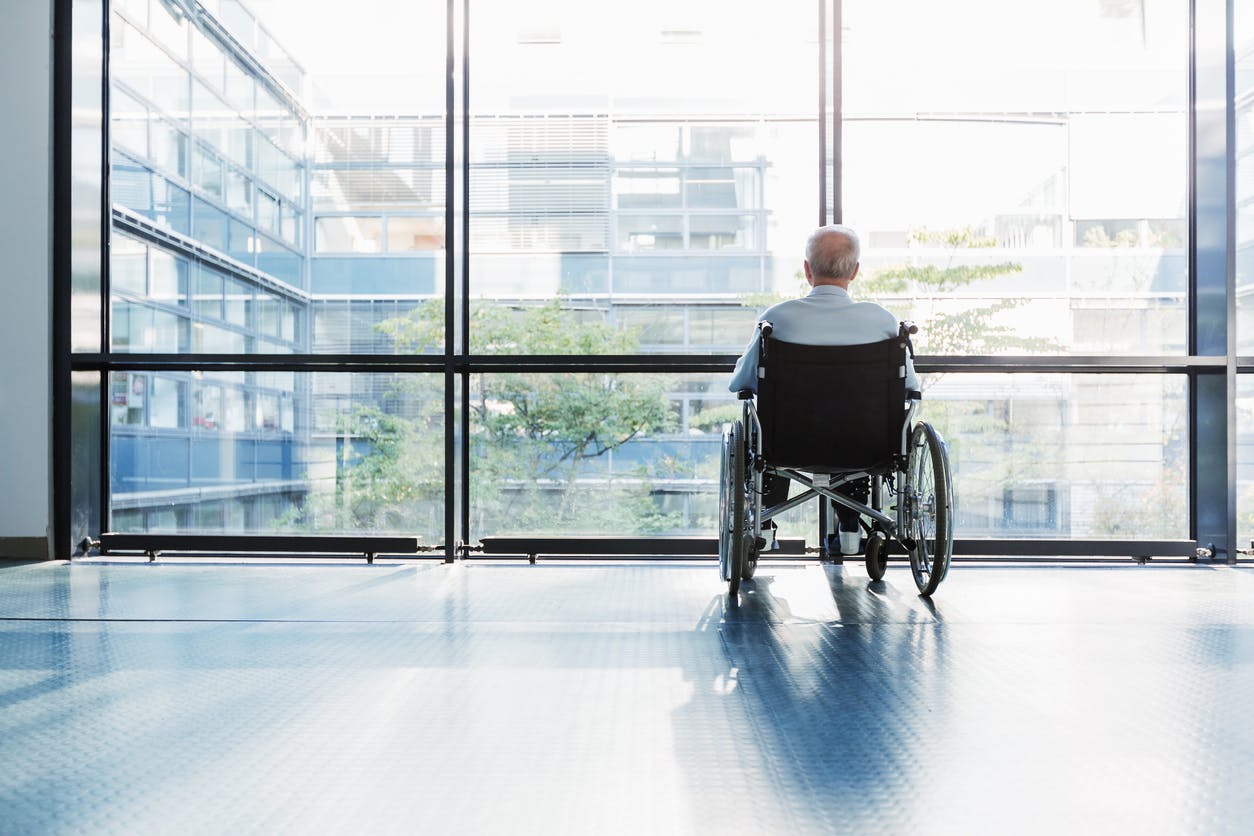His clients call Michael Lamonsoff “The Bull” because he never stops fighting for them. Thanks to “The Bull” and his team of top-rated litigators, the Law Offices of Michael S. Lamonsoff, PLLC., is consistently rated as one of the top personal injury law firms in New York City.
Holding nursing homes accountable for abuse
If one of your loved ones has been abused or neglected in a nursing home, the NYC nursing home abuse lawyers at the Law Offices of Michael S. Lamonsoff, PLLC, can help.
Residents of nursing homes have the right to be treated with dignity and care at all times. Nursing homes have a responsibility to take care of their residents’ medical needs and well-being.
Consequences of inadequate nursing home staffing
Unfortunately, nursing homes fail their residents when they cut costs and provide inadequate staff members. As a result, nursing home residents can suffer serious or fatal injuries. The National Center on Elder Abuse reports that seniors victimized by nursing home abuse have a 300% higher risk of death when compared to seniors not subject to abuse.
Nursing homes and their staff members should be held responsible when they neglect or abuse their residents who depend on them for care. It is important to know the signs of nursing home abuse, and to rapidly contact a nursing home lawyer who will help.

How frequent is nursing home neglect?
The National Center on Elder Abuse offers resources on the frequency of abuse in nursing homes. Here are just a few of the figures:
- In a report from 2000, 44% of nursing home tenants said they had been mistreated
- In the same report, 95% of residents said they had either been neglected or saw neglect in their own facility
- In a 2010 report, over half of nursing home workers surveyed admitted to mistreating their patients, either through neglect, violence or mental manipulation
Why You Should Contact A Nursing Home Abuse Lawyer
Our New York nursing home abuse attorneys at the Law Offices of Michael S. Lamonsoff understand the complexities of relevant nursing home abuse laws and regulations. We can effectively navigate the legal system to hold negligent facilities accountable, helping to secure justice and compensation for victims. Our expertise ensures that your case is handled with the attention it deserves, providing both legal redress and a means to prevent future abuse.
$16,000,000 Verdict Awarded to a Victim of Sexual Abuse
$12,157,000 Settlement in a Train Derailment Case
$11,750,000 Awarded to a Victim of Wrongful Conviction
$9,000,000 Awarded to a Victim of Municipal Assault
$6,500,000 Settlement in a Construction Accident Case
$5,750,000 Verdict Awarded in a Construction Accident Case
$5,500,000 Verdict Awarded in a Construction Accident Case
$5,000,000 Awarded in a Construction Accident Case
$5,000,000 Settlement Awarded to a Slip & Fall Case
$4,750,000 Awarded to an Injured Construction Worker
$4,100,000 Settlement in a Construction Accident Case
$4,000,000 Awarded to Families of Flight 587 Victims

What are the types of nursing home neglect and abuse?
Abuse comes in many forms, and no single list can describe all of them. However, here are some examples of abuse to watch out for:
Physical abuse
- Staff members hit, push, restrain, burn, or otherwise physically harm a resident
- Staff members fail to provide help with clothing, personal hygiene, and nutrition
- Staff members ignore the resident’s needs and fail to protect the resident from the risk of falls, bedsores, and poor health
Medication errors
- Staff members administer the wrong medications to residents or do not administer the correct medications in a timely manner
- Staff members intentionally give residents antipsychotic medications or sleeping pills to make them more docile
Sexual abuse
- Staff members engage in sexual conduct or touching with a resident without consent
- A resident may sexually abuse another resident when staff members do not provide sufficient supervision
Emotional abuse
- Staff members verbally threaten, mock, or use other harmful language towards the resident
- Staff members exploit residents on social media
Financial exploitation
- Staff members mismanage a resident’s finances and/or possessions.
The most common forms of nursing home neglect and abuse include the failure to prevent bedsores and the failure to take reasonable precautions to prevent falls.
How do bedsores develop?
Bedsores, also known as pressure ulcers and decubitus ulcers, develop due to pressure on the soft tissues when a resident sits or lies in the same position for too long. The blood in the area stops and the tissue dies, resulting in a bedsore.
Bedsores can advance into blisters and large, open wounds that develop deep in tissue and can reach down to the bone. Surgeries to repair major wounds can cost patients up to $100,000.
Bedsores are a medical risk that can cause serious injury or death. In fact, the estimated cost of bedsores is $11.5 billion per year in the United States. More than 2.5 million Americans develop bedsores every year, and about 60,000 people die each year from bedsore complications.
How should nursing homes prevent bedsores?
With proper care, bedsores are usually preventable. Staff members are responsible to frequently assist residents to:
- Walk
- Sit or lie in different positions
- Turn bedridden individuals every two to three hours
- Keep the resident’s skin clean
- Change diapers
- Ensure the residents are eating a well-balanced diet
When patients develop bedsores, nursing home physicians, nurses, and staff members must provide proper care and take necessary precautions to decrease the likelihood of serious medical complications.
What to do when someone is a victim of nursing home neglect or abuse
First, families of victims of nursing home abuse should immediately seek medical attention for their elder to care for their bedsores or injuries.
Incidents of nursing home neglect and abuse often go unreported to authorities. Nursing home residents may be reluctant to complain because they fear further abuse or embarrassment.
Nursing homes often have schemes in place to defend against lawsuits, so it is crucial to have an experienced nursing home abuse attorney on your side. The nursing home abuse lawyers in NYC at the Law Offices of Michael S. Lamonsoff have a breadth of knowledge in nursing home neglect and abuse. We can help you navigate the complex legal process needed to pursue a nursing home abuse lawsuit.
Nursing home falls
Nursing home residents often have trouble walking unassisted due to age, weakness, or poor balance. When residents try to walk unaided, they are at risk of falling, which can result in serious or fatal injuries.
One of the most serious injuries that an elderly person can suffer in a fall is a hip fracture. More than 35% of elderly people who suffer hip fractures die within a year. According to the CDC, over 25,000 elderly adults die as a result of falls every year.
How should nursing homes prevent falls?
Nursing homes are required to maintain the nursing home and install accommodations to provide assistance to residents who are at risk of falling. These accommodations include:
- Raised toilets and armrests
- Stairways with non-slick stairways and floors
- Ample lighting
- Handheld showers so residents can bathe while safely seated

What are the signs of nursing home neglect or abuse?
If staff members have been verbally abusive, have provided your loved one with incorrect medication or insufficient nourishment, have tried to cover up an accident, or have been physically hostile, you may be entitled to take legal action for personal injury.
Elderly victims often cannot adequately communicate instances of neglect or abuse. The nursing home abuse attorneys at the Law Offices of Michael S. Lamonsoff have taken on these cases before, and we can offer you a few red flags for negligence or mistreatment.
Has someone you love experienced…
- Quick weight gains or weight losses?
- Dehydration?
- An amplified frequency of sicknesses?
- Mysterious bruises or cuts?
- Bedsores?
- A change in character?
- A sudden fear of, or nervousness communicating around, nursing
- home staff members?
Does the nursing home facility seem…
- Less clean than you remember?
- Short-staffed?
How can legal compensation help?
Compensation can help victims of nursing home neglect or abuse pay for the costs of medical care and repair emotional pain and suffering. The Law Offices of Michael S. Lamonsoff represent families who have been the victims of nursing home negligence.
Your rights matter. Nursing homes that have caused injury to residents deserve to be held accountable, and their victims deserve reparation for the wrongs they have endured.
Contact us for help with your claim of nursing home abuse
The NYC personal injury attorneys with the Law Offices of Michael S. Lamonsoff are experienced in litigating cases involving nursing home neglect and abuse. If you or a loved one have been a victim of nursing home neglect or abuse, we invite you to contact us for a no-cost consultation. We are available 24 hours a day, 7 days a week.
Prior results do not guarantee a similar outcome. The information on this website is for general information purposes only. Nothing on this site should be taken as legal advice for any individual case or situation. This information is not intended to create, and receipt or viewing does not constitute an attorney-client relationship.

